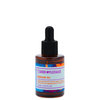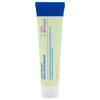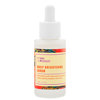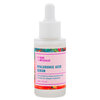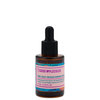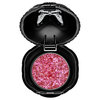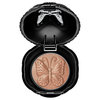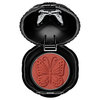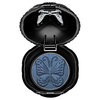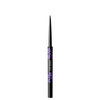
Exfoliating is one of the best things you can do for your skin. The process sloughs off dead skin cells and allows new smooth, healthy cells to take their place. It also banishes dry, flakey bits, keeps pores clean and clear, and leaves you looking and feeling great. But you have to be careful and keep your specific skin type in mind: rub the wrong way, and you can actually do more harm than good. To get advice on devising the right exfoliating regime for your skin, we called in two experts with different perspectives: New York City–based dermatologist Meghan O’Brien, M.D., and naturalist and founder of Indie Lee skin care, Indie Lee.
Know your product
First, the basics. There are two main types of exfoliators, physical and chemical. Physical exfoliators are products that physically rub off dead skin cells, usually with the help of our hands. Everything from salt- and sugar-based scrubs to exfoliating brushes fall into the physical category. Chemical exfoliators include facial peels and products that slough off dead skin using active (but not necessarily “scrubby”) ingredients like alpha-hydroxy acids (AHAs), and beta-hydroxy acids (BHAs). These usually come in cream form and loosen up the dry cells on the skin’s surface, allowing them to fall away.
Determine your skin type
Your skin type will determine which type of products are best for you—both so you’ll get optimal results and avoid harming your skin. Each of our experts stressed the importance of knowing your skin type before starting an exfoliating regimen. (Check out our guide to skin types here for help.) Both Dr. O’Brien and Lee seem to agree: for sensitive, dry, or acne-prone skin, chemical exfoliators are the way to go: “Harsh, physical exfoliation can cause damage, especially to sensitive, acneic, or rosacea- or eczema-prone skin,” says Dr. O’Brien. If you don’t fall into any of these categories, a physical exfoliator is a great option for getting skin smooth and soft.
Knowing your skin type isn’t just important when it comes to picking the right exfoliator. It’s also essential to making sure you aren’t over-scrubbing. Dr. O’Brien recommends that people with drier, more sensitive skin should only exfoliate a few times a week. Those with less sensitive skin types may exfoliate nightly or every other day. Try out a routine and pay attention to how your skin reacts. If you see any signs of irritation, dial back the frequency—and perhaps try another product. This sort of monitoring is key, because you could cause permanent damage! Dr. O’Brien warns, “Over-exfoliating can lead to compromising the skin’s barrier function, leaving it susceptible to further irritation, redness, and dryness.” Which is basically the exact thing you’re trying to combat with exfoliation. No thanks!
Clean tools regularly
Lee notes that if you use any sort of tool (facial brush, sponge, loofah, etc.), it’s important you clean it after every use and store it in a dry, sterile place. “Bacteria grows easily on these items, and instead of doing good for your skin, you’ll end up just spreading that bacteria,” she explains. Cleaning a brush (like a Clarisonic) is super simple: use a gentle cleanser like baby shampoo and some hot water (as warm as your hands can handle) get a good lather going. Run your fingers through all the bristles to get out any gunk, then rinse thoroughly and allow the brush to dry completely before the next use.
Moisturize and protect post-scrub
Following up with a bit of moisturizer is as important as exfoliating itself. “After exfoliating, skin is extra sensitive,” explains Dr. O’Brien, who suggests a heavier cream for more sensitive or drier types. During warmer weather, or for oilier skin, “a lighter lotion or serum may be enough,” she says. If you’re using a chemical product, don’t overlook this step, even though there’s no actual “scrubbing” involved—and remember that it’s vital to incorporate sunscreen. Lee tells us that your skin might be sensitive to sunlight for up to a week after using a chemical exfoliator, depending on how aggressive the product or peel is. “Always wear sunscreen during the day and replenish every few hours,” Lee says. Important advice, whether or not you just scrubbed your face!
You Might Also Like
-
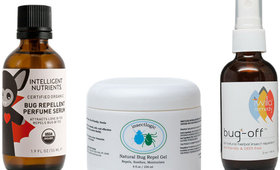
Skincare
3 Glam Bug Sprays That Really Work
- 344
-

Masks
Slumber Party D.I.Y. Beauty Ideas!
- 522
-
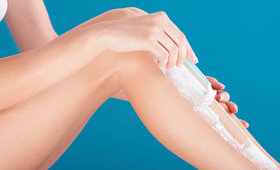
Skincare
Say Goodbye to Ingrown Hairs!
- 1060
-

Skincare
In Praise of Witch Hazel
- 1142
-
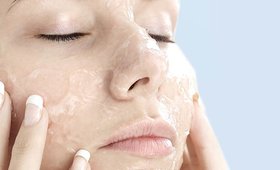
Skincare
Reduce Sun Damage and Minimize Fine Lines With This Copper Peel
- 241
-
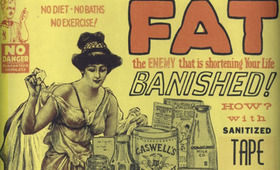
Makeup
Deadly Lipstick and Other Fatal Beauty Practices Throughout the Ages
- 630
-
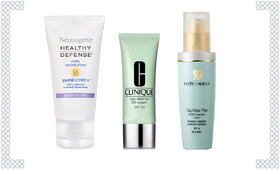
Moisturizer
Top 3 Daytime Moisturizers For Winter
- 153
-

Makeup
6 More Weeks of Winter? Fake A Snow Bunny Glow
- 302



